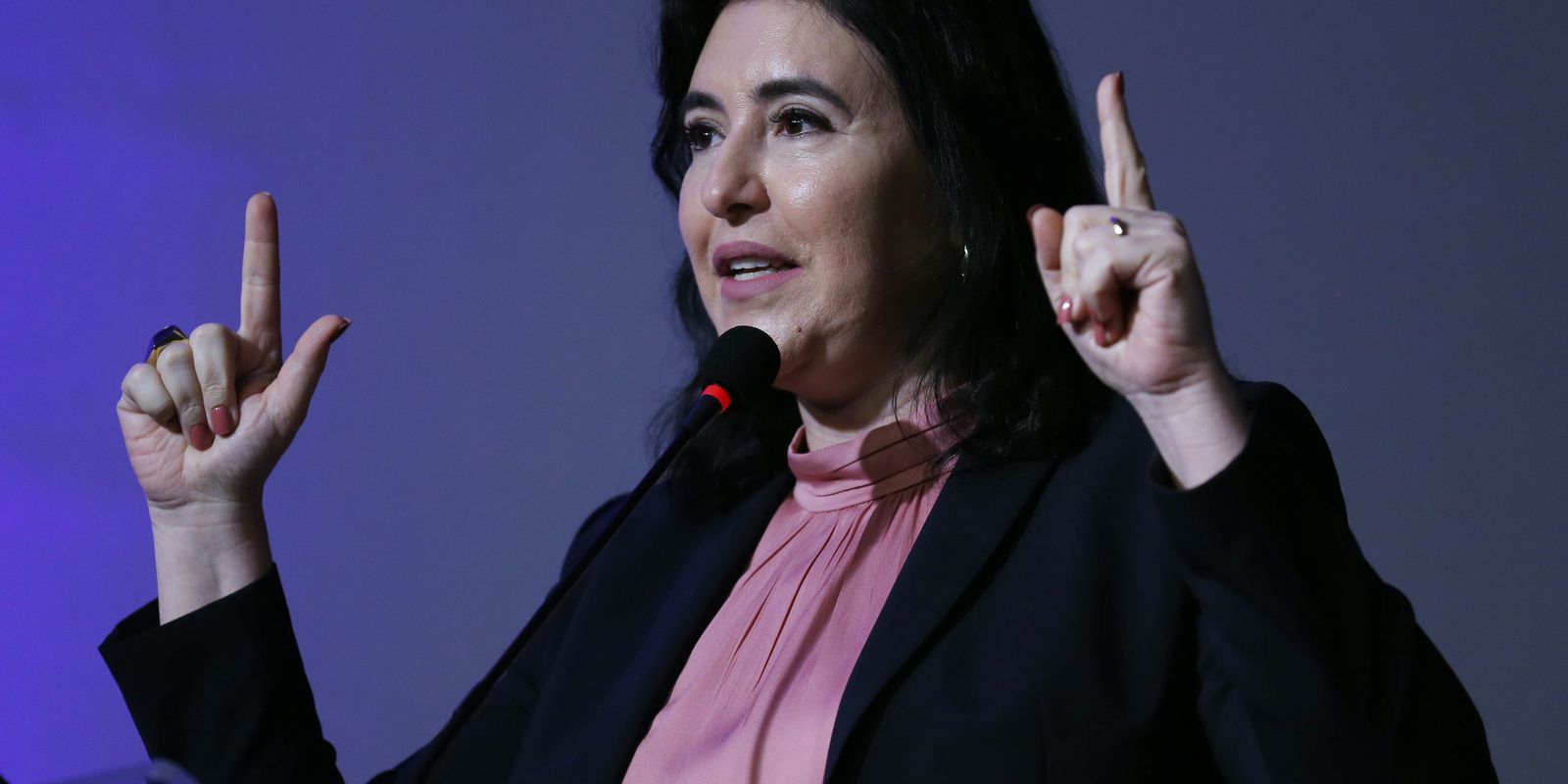A possible change in the inflation target for this year is not under discussion by the government, said this Monday (27th) the Minister of Planning, Simone Tebet. At an event promoted by consultancy Arko Advice, in São Paulo, she also stated that the new fiscal rule that will replace the spending ceiling will not have exceptions, but informed that the parameters themselves will allow some flexibility in unforeseen situations, such as pandemics.
On Thursday (30), the National Monetary Council (CMN), a body formed by the Ministers of Finance, Planning and the President of the Central Bank, will hold its second meeting of the year. Under the current regime, it is up to the CMN to define the official inflation target, which is set at 3.25% for 2023, with a tolerance margin of 1.5 points more or less, and at 3% for 2024 and 2025, with the same margin.
“Regarding the inflation target, the parameters, whether we are going to change it or not, this is a non-issue for the government. At least one non-issue at the Ministry of Finance and the Ministry of Planning and Budget. And it’s a non-subject not just because I can’t say that. It is a non-issue because Minister Haddad and I understand that this is an issue that is not on the table,” said Tebet.
The minister declared that there was a conversation on the subject between her, the Minister of Finance, Fernando Haddad, and the president of the Central Bank (BC), Roberto Campos Neto, at the beginning of the year. According to Tebet, the issue was not addressed again and there are doubts about whether a change in the target would result in improved economic expectations and a drop in the Selic rate (basic interest rates for the economy), currently at 13.75% per year.
“Ah, but in the middle of the year is the date [da reunião do CMN que define a meta]. We are not debating, we even have doubts whether changing the target will generate the result we want, which is to reduce inflation so that we can have a decrease in the interest rate”, justified the minister.
In June of each year, the CMN sets the target for three years from now and may revise the target for the current year and the following two years.
Framework
In an interview after the event, Tebet clarified doubts about the new fiscal rule that will replace the spending cap. According to her, the new framework will not bring permanent exceptions, but the parameters themselves will allow some flexibility in spending in case of unforeseen events, such as pandemics and calamity situations.
“It’s not in the framework, nor in the model, nor in the parameters, to create exceptions. We are not talking about exceptions, because, when you talk about exceptions, you send an exception to the National Congress and they turn ten into the political and legitimate decision of deputies and senators. We don’t want that. It is a simple framework, therefore easy to understand. It’s flexible, so you have parameters in exceptional cases, in very serious problems”, stated Tebet.
health and education
Regarding spending on health and education, Tebet clarified that the new fiscal framework should allow a little more spending in these areas, as long as spending does not grow more than revenue.
“In this case, we are not talking about making any expense exceptional, but taking a specific look at health and education.”
Last week, Minister Haddad informed that the new fiscal framework will have a transition mechanism to reset the drop in spending on health and education after the creation of the spending ceiling.
Before the spending ceiling, the values were defined according to the net current revenue of the federal government. After the ceiling, the minimum limits for health and education began to be adjusted annually by inflation according to the value executed in 2016.
The government understands that, as the new fiscal rule will annul the spending ceiling, as provided for in the constitutional amendment of the Transition, the rule that was in force until the end of 2016 will again apply.









